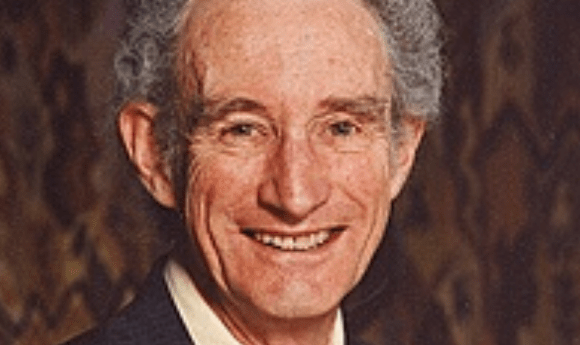Chaos theory pioneer, Robert May, dies aged 84

The gifted polymath, known as one of Australia’s most accomplished scientists, has sadly passed away.
Robert May – affectionately known as Bob by his friends and colleagues, but whose official title was Lord May, Baron of Oxford – sadly passed away on 28 April 2020, aged 84. He has since been described by those who knew him best as a “gifted polymath” and a “true giant” among scientists.
He was considered as one of Australia’s most accomplished scientists. Born in Sydney (NSW, Australia) on 8 January 1936, he made his mark on the scientific landscape in the UK as the government’s chief scientific advisor from 1995–2000, being knighted in 1996 and serving as the Royal Society’s (London, UK) president between 2000 and 2005. His role as the latter contributed in his achievement of being “the first person in the history of the Royal Society to get a swear word in the minutes,” as relayed by Joss Bland-Hawthorn, director of the Sydney Institute for Astronomy. “He said not even Isaac Newton achieved that.”
Recalling the impact May had on his own studies, Australian astrophysicist Benjamin Pope said, “I became aware of his achievements almost as soon as I learnt anything about physics in university. My first contact with computer programming was at the University of Sydney, in first year physics, where the example is to recreate Robert May’s experiment with the bifurcation diagram and the logistic map.”
“His bifurcation diagram is one of the iconic diagrams in physics,” he continued. “[And] he made what was between three or four independent discoveries that lead to chaos theory. You might have heard of the butterfly effect… May’s is probably the other foundational, computational model of chaos.”
Pope then went on to study at the University of Oxford (UK) – where May had previously worked as a fellow at Merton College – meeting him at a dinner he had helped organize, which he said was a highlight of his university career.
May was also influential across biology, zoology, epidemiology and public policy. He applied mathematical techniques to the study of animal population dynamics, making huge advances to the field. He also contributed greatly to the development of theoretical ecology, applying the same knowledge to epidemiology and biodiversity studies.
He won the Copley Medal in 2007 – the Royal Society’s most prestigious award that had previously been won by scientists including Stephen Hawking, Albert Einstein, Charles Darwin and Dorothy Hodgkin. The Royal Society’s current president Venki Ramakrishnan remembered May as “an extraordinary man who drove great change in every domain he committed his talents to.”